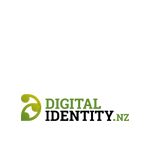Kia ora,
There is much to appreciate in the clever technologies that some very smart people have nurtured over the years. We’re seeing an explosion of video-based conference calls, team meetings and webinars keeping many of the wheels of business turning. We’re also seeing an equally impressive explosion of human connection through the windows of our computer screens – virtual coffee mornings, quiz sessions, lunch dates and evening drinks have kept us connected and allowed for an impressive expression of individuality when it comes to choice of outfits and virtual backgrounds. ‘Who would have thought?’ innovations are happening all around us.
We’re also seeing incredible leaps in collaborative efforts to address the very real health challenges that COVID-19 brings with it; from the AI-boosted research efforts to understand the virus and develop vaccines, to people and organisations rallying to address social and physical needs, to the rapid development of a hybrid education system, to mechanisms that allow for effective tracing and intervention to halt the spread of the virus.
Unprecedented times call for unprecedented action, but how do we know if the solutions we’re putting in place are the right ones? Skimming the headlines about Zoom over the last couple of weeks us how quickly the unintended can become the problematic. Contact tracing is a prime example of our current dilemma. A number of countries and technology providers have been working on ways to effectively mitigate the risk of community infection. In the last few days Google and Apple have announced an initiative to build the foundations of contact tracing into their operating systems. Both companies have been very careful in how they positioned their announcement, highlighting that “Privacy, transparency, and consent are of utmost importance in this effort”. They are acutely aware that the same techniques proposed to trace the spread of COVID-19 could be used for less noble purposes, be that by the tech companies themselves, or under the direction of governments.
So how do we navigate these identity challenges when we are dealing with shades of grey? And what does this look like when we view this from an Aotearoa/New Zealand perspective? What of our very real digital divide, what of principles of sovereignty and kawanatanga (governance)?
Transparency is a good starting point, and a fundamental principle that allows for informed consideration. The Google and Apple partnership promises to “openly publish information about our work for others to analyze”, and the likes of Singapore have open-sourced their TraceTogether source code. Fundamental questions include those of trust, privacy, security and risk.
So once we have the technology available for scrutiny, whose job is it to scrutinise? This is where our various communities must take the lead – utilising our existing networks and fostering the development of new ones. And while doing this we must recognise that these are discussions for all New Zealanders, not just for those blessed with roles in leadership and/or technology. This is the time for us to look around our (virtual) tables and recognise the voices that are missing, and make sure that they are in the middle of our discussions, not at the periphery.
COVID-19 has taught us we must act with urgency, but in a way that embraces the insight of academic and professional opinion blended with diverse community and political leadership. There are no easy solutions to this. There are however some excellent questions that will help us collectively navigate through our responses with kindness, safety and trust.
Ngā Mihi,
Andrew Weaver
Executive Director
To receive our full newsletter including additional industry updates and information, subscribe now






